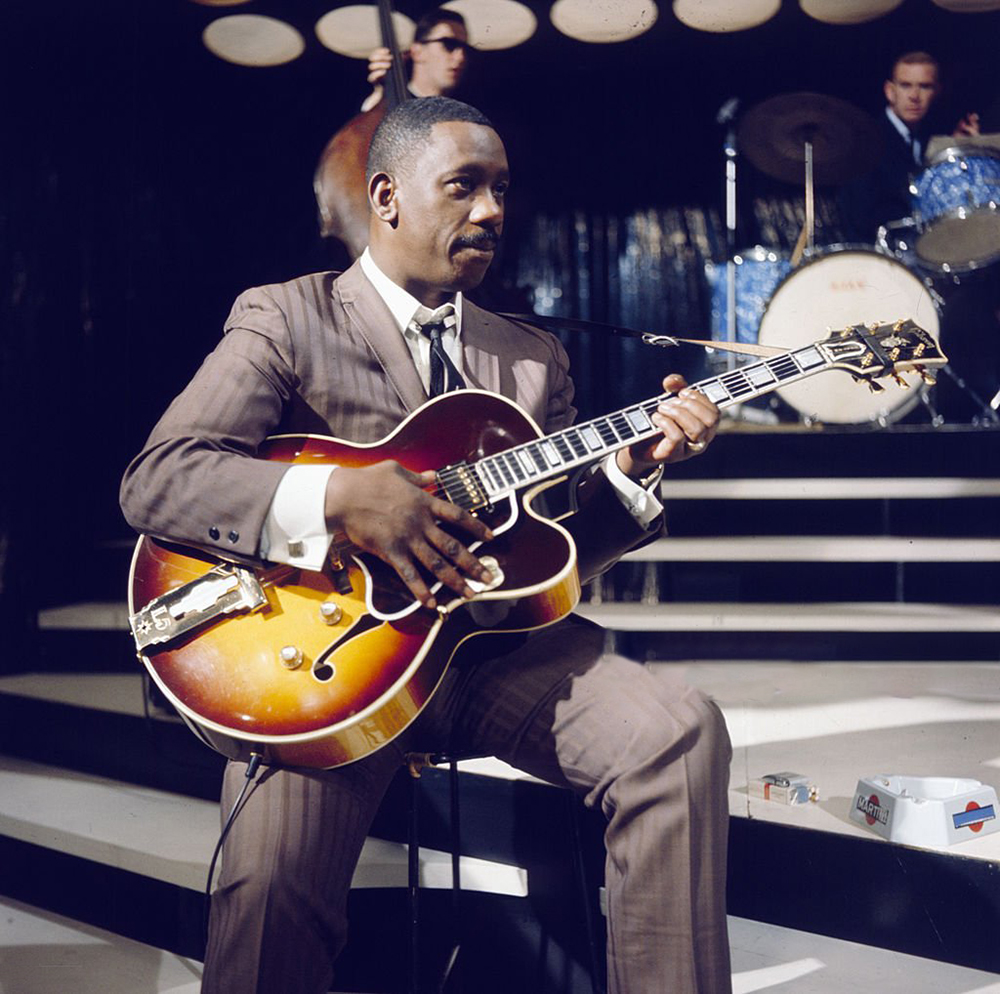Wes Montgomery (1923-1968) was an influential American jazz guitarist known for his distinctive playing style and innovative approach to the instrument. He was born on March 6, 1923, in Indianapolis, Indiana. Montgomery grew up in a musical family, and his brothers Buddy and Monk were also talented jazz musicians. Wes initially played the electric bass in the family band, but he later switched to the guitar and quickly developed his own unique sound and technique.
One of Montgomery’s defining characteristics was his use of the thumb to pluck the strings instead of a pick. This gave his playing a warm, rounded tone and allowed him to create rapid and intricate lines. His playing style incorporated elements of bebop, blues, and his own melodic inventions, making him highly regarded among his peers and jazz enthusiasts.

In the late 1950s and early 1960s, Montgomery gained widespread recognition through his recordings for the Riverside and Verve labels. His albums, such as “The Incredible Jazz Guitar of Wes Montgomery” (1960) and “Smokin’ at the Half Note” (1965), showcased his virtuosic playing and improvisational skills. He was particularly known for his ability to play single-note lines and octaves simultaneously, a technique that became known as “thumbing.”
Wes Montgomery’s music was characterized by his soulful interpretations of popular songs, his masterful improvisations, and his smooth, lyrical phrasing. He was highly influential and inspired numerous guitarists across different genres. His playing style had a lasting impact on jazz guitar and helped shape the evolution of the instrument.

Tragically, Wes Montgomery’s career was cut short when he passed away from a heart attack on June 15, 1968, at the age of 45. Despite his relatively short life, his contributions to jazz guitar and his distinctive sound continue to be celebrated and revered by musicians and fans alike.

